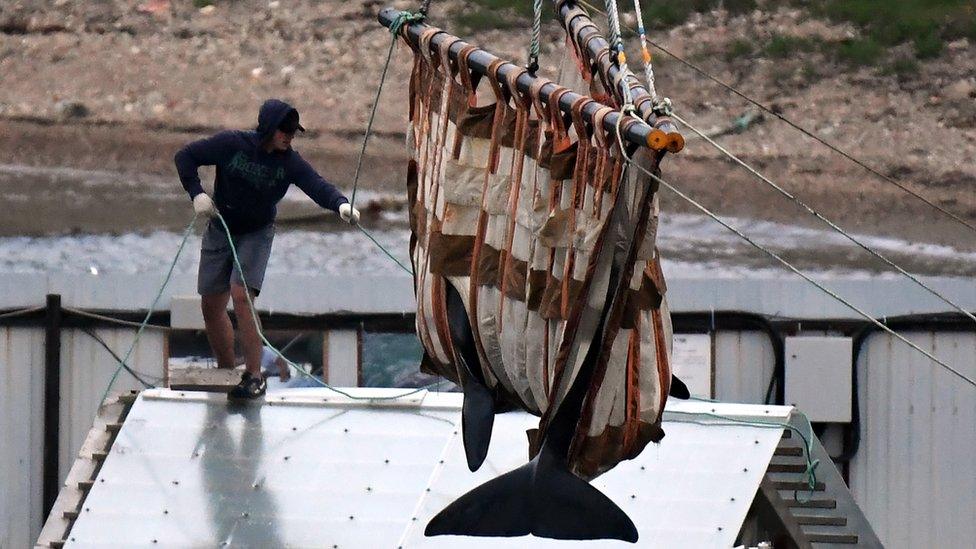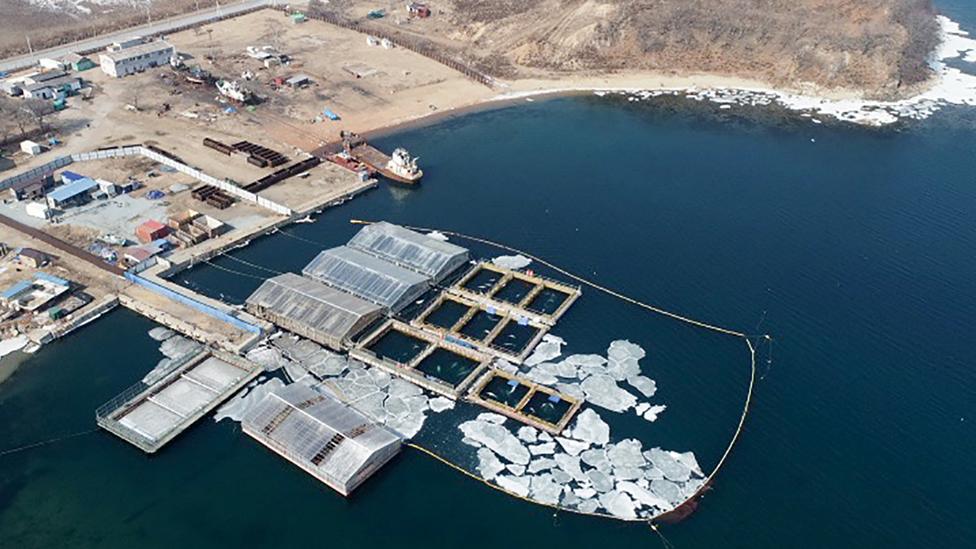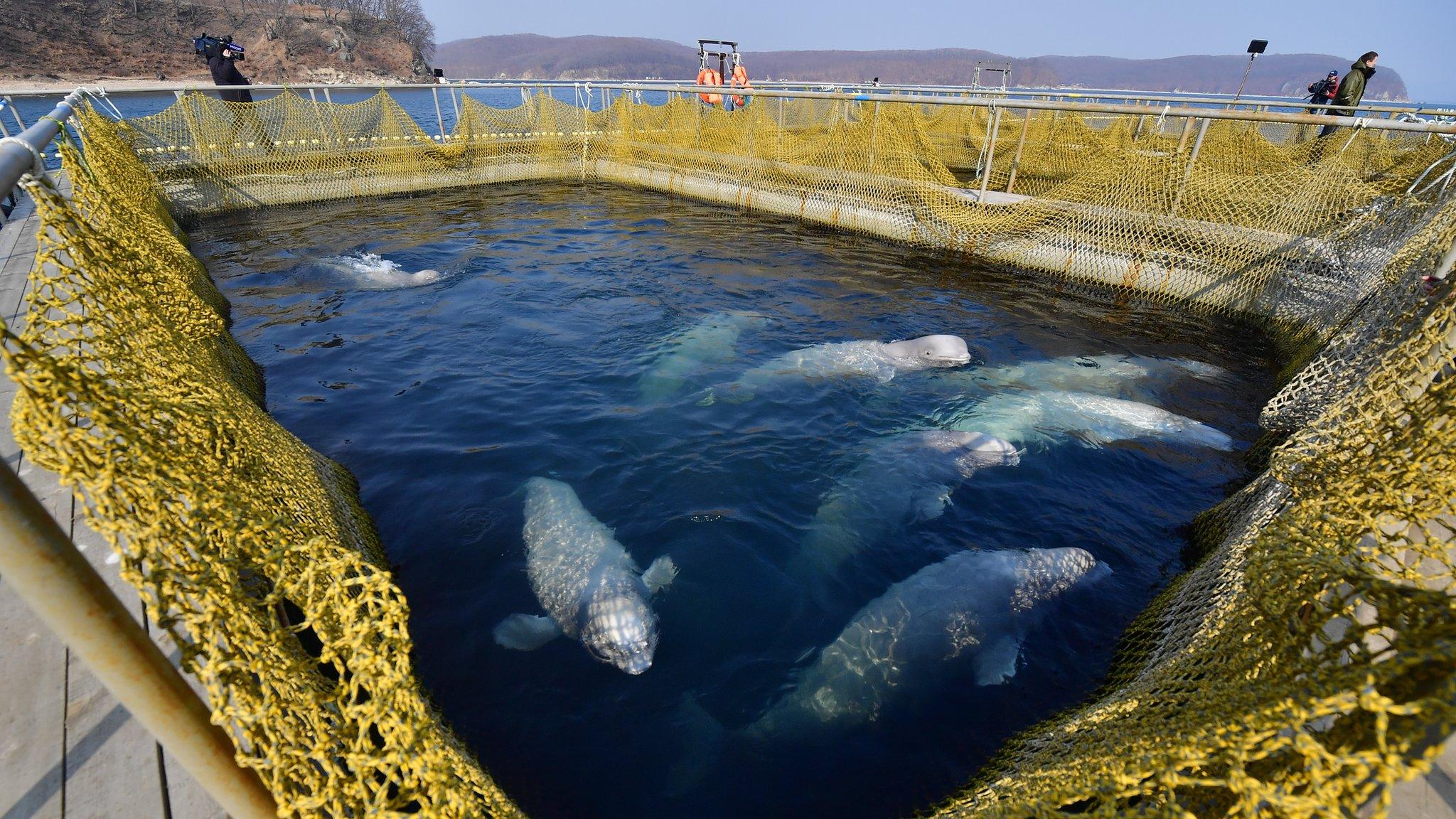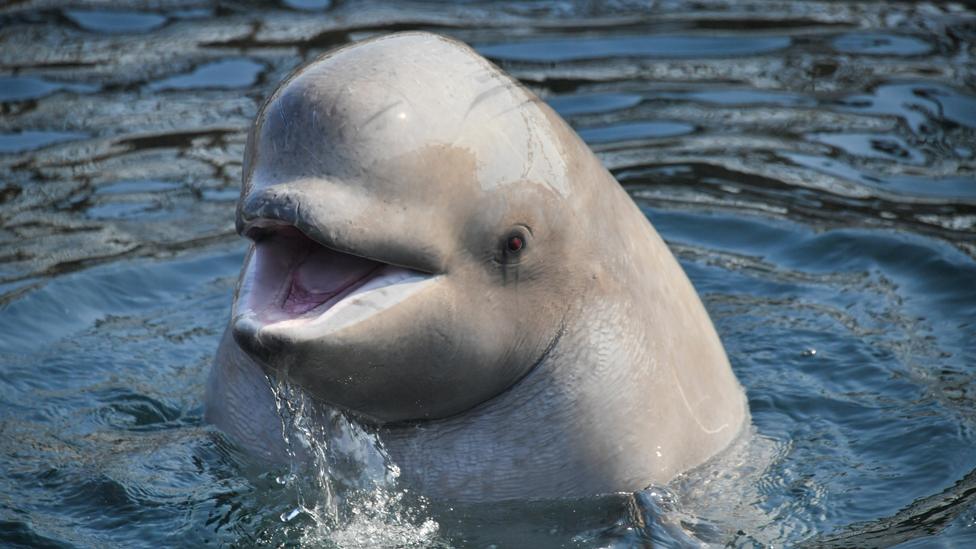Russia to release whales from 'jail' in far east after outcry
- Published

Experts released two orcas from the so-called "whale jail" on Thursday
Russia has started to release a group of nearly 100 captive whales which have been kept in small pens in the far east of the country.
It comes after the so-called "whale jail" provoked an international outcry, with marine scientists and celebrities calling for the mammals to be released.
In total, 11 killer whales (orcas) and 87 belugas are being kept in cramped enclosures on the Sea of Japan.
They will be released in stages and the process will take several months.
"We have taken the only sensible decision at the recommendation of scientists to release the animals to their natural habitat where they were caught," Deputy Prime Minister Alexei Gordeyev told reporters on Thursday.
"This operation will take about four months," he added. Eight whales will reportedly be freed in the first stage of the process.
President Vladimir Putin praised the decision during his annual televised phone-in in which he fields questions from members of the public.
"The killer whales alone - as far as I know - are worth around 100 million dollars," he said. "When it's big money, problems are always hard to solve. Thank God things have started moving."
What was the "whale jail"?
The juvenile whales were caught last year in the Sea of Okhotsk. They were then transported more than 1,300km (800 miles) south and kept in cramped pens near the port town of Nakhodka.
Although Russia allows the capture of whales for scientific purposes, experts feared the animals were bound for theme parks or aquariums in China.
Individual orcas, often caught illegally, can fetch millions of dollars. Belugas are sold for tens of thousands of dollars.

The belugas are in cramped pens which are taking a toll on their health
Greenpeace Russia, an environmental group, raised the alarm about the animals last October. They believe at least four of the whales died while in captivity.
Many are known to be in poor health and some have shown signs of hypothermia. In the wild whales swim tens of kilometres every day - and that keeps them warm - but in small pens they get cold.
In January, Greenpeace also reported that some of the whales were showing skin lesions and flipper deterioration. Some of those injuries may have been caused by bumping into the sea ice.
Who campaigned for their release?
The confined whales scandalised scientists, politicians and activists around the world.
Environmental groups demanded the release of the mammals and celebrities have also campaigned to rescue them.

The whale pens are at a remote site by the Sea of Japan
Hollywood star Leonardo DiCaprio urged his social media followers to sign a petition, external - and more than 1.5m people have done so.
Pamela Anderson, the former model and Baywatch TV star, wrote to President Vladimir Putin, urging action to release the whales. She is active in the International Fund for Animal Welfare (IFAW).
Earlier this month, the companies that caught the whales were fined for breaking fishing rules. One company - White Whale - was fined 28.1 million rubles ($433,000; £430,000).
Charles Vinick, executive director of the Whale Sanctuary Project, said the release should be conducted "as humanely as possible".
"We have provided extensive recommendations [about how to do this]," he told the BBC. "While they are not able to follow all of our recommendations, we hope they can follow as many as possible."
"It's all about the welfare of the animals," he added.
- Published7 June 2019

- Published4 April 2019
